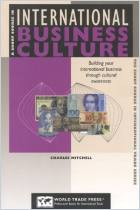Join getAbstract to access the summary!

Join getAbstract to access the summary!
Ernest Grundling and Anita Zanchettin
Global Diversity
Winning Customers and Engaging Employees in World Markets
Nicholas Brealey Publishing, 2006
What's inside?
Global business requires understanding employees and customers who are shaped by different cultures. Get savvy here.
Recommendation
Discussions about globalization invariably focus on its economic aspects, but the cultural impact on your multinational company is equally important. Even the best-intentioned managers can stumble while working with local employees and clients if the parties don't know what to expect from one another. Ernest Gundling and Anita Zanchettin cover what managers should know culturally to work in eight countries (each profiled by an expert with local experience). Their insightful analyses draw upon demographics, geography, history and the news to explore differences among and within national cultures, and to discuss corporate diversity in different settings. They suggest ways to win customers and engage employees, but if they fall short, it is in this tactical realm. If you have an ex-patriate assignment in China, Egypt, India, Japan, Mexico, Russia, the United Kingdom or the United States, getAbstract suggests reading the relevant chapter to get started on the road to cultural awareness and cross-cultural management.
Summary
About the Authors
Ernest Gundling is co-president and founder of an intercultural management consulting firm, where Anita Zanchettin is director of global inclusion. The firm manages global diversity issues including cultural assessment, systemic change and training. Dr. Gundling teaches at the Haas School of Business at the University of California, Berkeley.






















Comment on this summary
Gracias por su ayuda,
Nathalie Jaumin